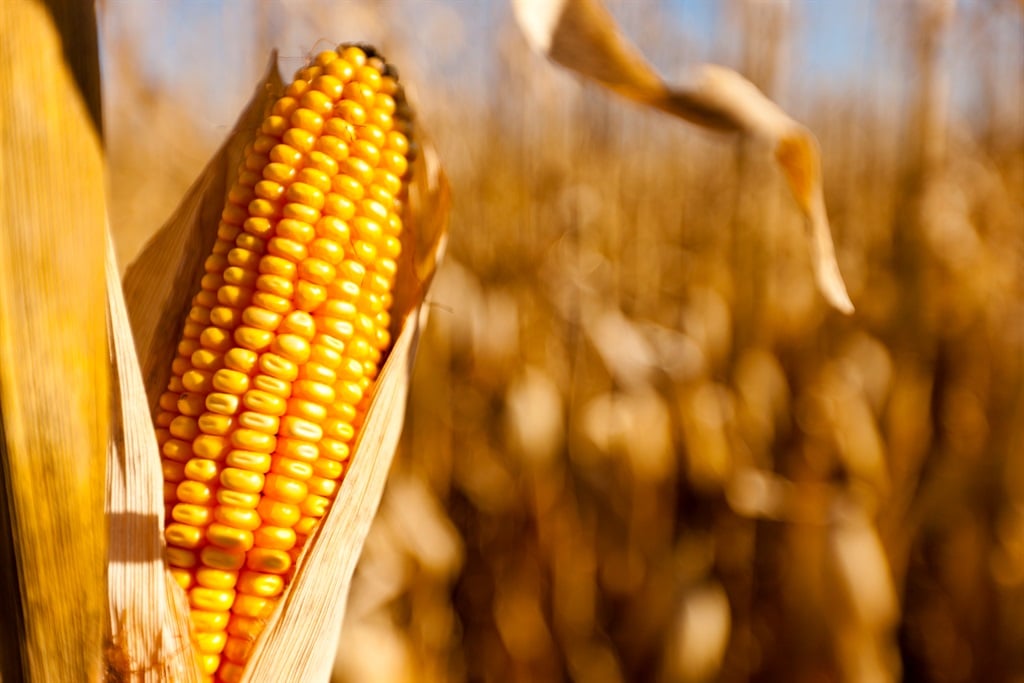
On Tuesday, maize prices rocketed by 15% in a single day in the spot market as seasonal rains delayed planting by a month, with wet conditions now preventing farmers from harvesting. (Richard Hamilton Smith/Getty Images)
Annual consumer inflation cooled to 2.7% in March, from 3.2% in February.
This was the first inflation decline in five months, and was largely due to lower fuel prices, Statistics SA reported.
Average fuel prices are almost 9% cheaper than a year ago and, despite a sharp weakening in the rand, petrol and diesel prices are currently on track for small cuts in the first week of May. South African fuel prices are largely determined by international oil costs and the rand exchange rate, as oil is priced in dollars.
Amid trade war turmoil and fears about the DA leaving the government of national unity, the rand fell to almost R19.90 earlier this month. But it has since recovered to trade around R18.55 on Wednesday morning. Meanwhile, oil prices have been under pressure amid fears about global demand and too much supply in the market.
Smaller hikes in education prices have also helped to cool inflation.
Every year, education fee hikes are included in March inflation data. Statistics SA reports that average school fees increased by 5.0% (from 6.6% in 2024), while prices at tertiary education institutions rose 3.7% in 2025, compared with 5.9% a year before.
Food inflation cooled slightly to 2.7% in March from 2.8% in February, with a mixed performance from different products:
Maize meal continues to see painful hikes, with prices now more than 13% higher than a year ago. This is set to continue over the short term. On Tuesday, maize prices rocketed by 15% in a single day in the spot market as seasonal rains delayed planting by a month, with wet conditions now preventing farmers from harvesting.
Coffee and tea prices are also red-hot, with instant coffee (+18,8%) and black tea (+12,8%) much pricier than a year ago.
March’s inflation number is even further below the Reserve Bank’s inflation sweet spot of 4.5%, the midpoint of its inflation target range.
Last month, the monetary policy committee (MPC) left interest rates unchanged despite lowering its forecast for inflation for the year to 3.6% from 3.9% previously, and for 2026 from 4.6% to 4.5%.Two out of six of its members favoured a cut of 25 basis points.




